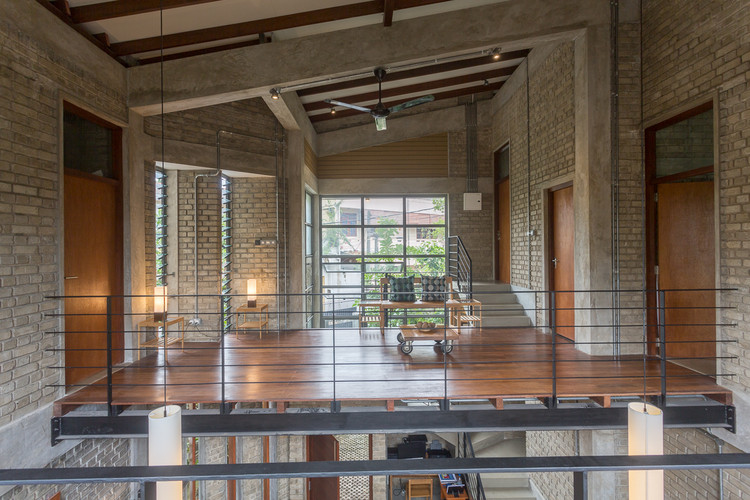
-
Architects: Chinthaka Wickramage associates
- Area: 223 m²
- Year: 2018
-
Photographs:Kesara Ratnavibhushana Photography
-
Lead Architect: Chinthaka Wickramage

Project Description:
The site was as typical as suburbia could get: a street with a rhythm of roof tiled, plastered brick boxes built to the limit of the road setbacks. Site is bounded by existing houses on two sides with a main neighbourhood street on east side. The density and potential proximity of neighbouring houses was an issue to address. In a neighbourhood of older detached houses ranging from one to two storeys the narrative of the house began as a shell for a tall living room.



























